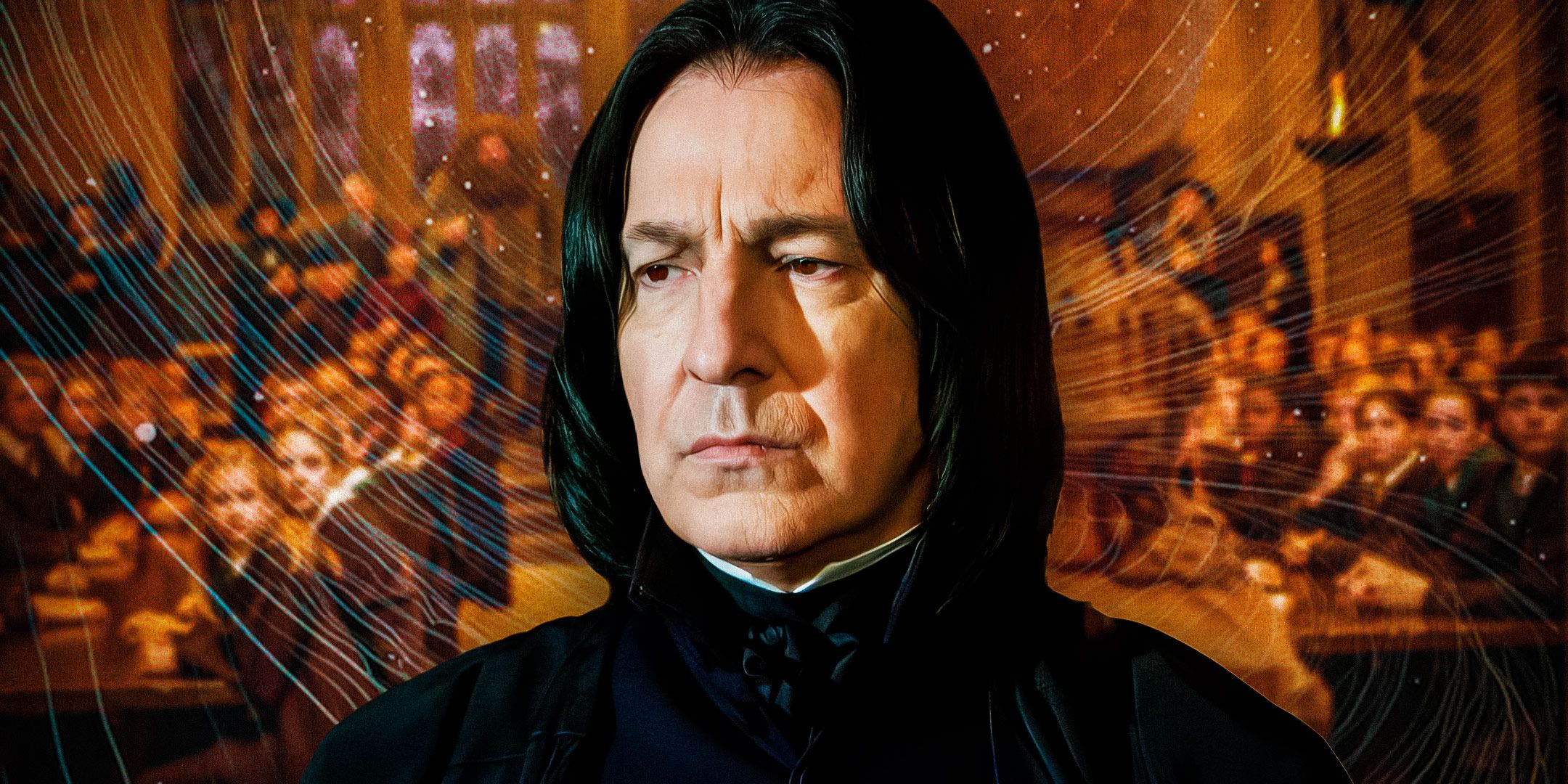 HBO’s upcoming Harry Potter television reboot has ignited a firestorm of debate with the announcement that British actor Paapa Essiedu will portray the iconic Severus Snape, a role immortalized by the late Alan Rickman in the original film series. The casting decision, confirmed on April 14, 2025, has sent shockwaves through the Harry Potter fandom, sparking heated discussions, polarized reactions, and, in some cases, outright hostility. From accusations of “woke” casting to concerns about narrative implications, the controversy surrounding Essiedu’s role is one of the most divisive in the franchise’s history. Here, we unpack the drama, the arguments, and what this means for the future of HBO’s ambitious adaptation.
HBO’s upcoming Harry Potter television reboot has ignited a firestorm of debate with the announcement that British actor Paapa Essiedu will portray the iconic Severus Snape, a role immortalized by the late Alan Rickman in the original film series. The casting decision, confirmed on April 14, 2025, has sent shockwaves through the Harry Potter fandom, sparking heated discussions, polarized reactions, and, in some cases, outright hostility. From accusations of “woke” casting to concerns about narrative implications, the controversy surrounding Essiedu’s role is one of the most divisive in the franchise’s history. Here, we unpack the drama, the arguments, and what this means for the future of HBO’s ambitious adaptation.
The Casting Announcement That Shook the Fandom
On April 14, 2025, HBO revealed the first six cast members for its Harry Potter series, which promises a “faithful adaptation” of J.K. Rowling’s beloved novels, with each season dedicated to one book. The announced cast includes heavyweights like John Lithgow as Albus Dumbledore, Janet McTeer as Minerva McGonagall, and Nick Frost as Rubeus Hagrid. However, it was Paapa Essiedu’s casting as Severus Snape that dominated headlines and social media. Essiedu, a 34-year-old Emmy-nominated actor of Ghanaian descent, known for his standout performances in I May Destroy You, Gangs of London, and Black Mirror, steps into a role described in Rowling’s books as a “thin man with greasy, shoulder-length black hair, a large hooked nose, sallow skin, and cold, black eyes.”
While Essiedu’s acting credentials are undeniable—his versatility and emotional depth have earned him critical acclaim—the decision to cast a Black actor in a role previously portrayed by a white actor (Rickman) and described as white in the source material has sparked intense backlash. Social media platforms, particularly X, erupted with reactions ranging from enthusiastic support to vitriolic criticism, including racist comments targeting Essiedu’s ethnicity.
The Backlash: From Disappointment to Racism
The negative response to Essiedu’s casting has taken several forms, with some fans expressing genuine concerns about fidelity to the source material, while others have veered into toxic territory. A common critique centers on the physical differences between Essiedu and Snape’s book description. Fans have pointed out that Snape’s “sallow skin” and gaunt appearance are integral to his characterization as a brooding, haunted figure. One X post lamented, “Paapa Essiedu should not have been cast as Severus Snape. He doesn’t fit the characteristics of Snape from the book,” echoing a sentiment shared by those who feel the casting deviates too far from Rowling’s vision.
However, much of the backlash has been marred by racist rhetoric. Comments on X and other platforms have included statements like, “Snape is white in the books, so he should be white in the show. This is just DEI nonsense,” and suggestions that Essiedu’s casting was a “performative” diversity move. Some fans have even proposed alternative actors, with one X user declaring, “Every single Harry Potter fan wanted Adam Driver,” reflecting a preference for a white actor perceived as closer to Rickman’s portrayal.
HBO has taken steps to mitigate the hate by disabling comments on its official Harry Potter cast announcements across Facebook, TikTok, and Instagram. Despite this, racist reactions have proliferated on other platforms, prompting condemnation from parts of the fandom. One X post from @TheDailyHPotter stated, “You may not like the choice of Paapa Essiedu as Severus Snape, but racism, hate messages, threats or insults to the actor are NEVER justified.”
Narrative Concerns: A New Layer to Snape’s Story?
Beyond aesthetics, some fans have raised concerns about how Essiedu’s casting might alter Snape’s narrative arc. In the books, Snape’s outsider status stems from his working-class background, social awkwardness, and unrequited love for Lily Potter, not his race. Critics argue that casting a Black actor introduces racial dynamics that could reshape key storylines, particularly Snape’s bullying by James Potter during their Hogwarts years. One fan on X wrote, “Now imagine what it will look like when white James Potter bullies Black Severus Snape… Great way to push a racism, victim agenda.”
This perspective suggests that the bullying, originally depicted as a personal rivalry, could be interpreted as racially motivated, potentially overshadowing Snape’s complex motivations. Similarly, Harry’s initial suspicion of Snape in Harry Potter and the Sorcerer’s Stone might take on unintended racial undertones. As one article noted, “Changing [Snape’s race] adds an entirely different dimension to his backstory, one that was never part of the original text.”
However, supporters argue that these concerns are overblown. They point out that Snape’s “sallow skin” can be achieved through makeup, as it refers to a sickly complexion rather than exclusively white skin. Moreover, Essiedu’s proven ability to portray complex, traumatized characters—like Kwame in I May Destroy You or his role in Black Mirror’s “Demon 79”—suggests he can capture Snape’s emotional depth, regardless of racial differences.
The Case for Essiedu: Talent Over Tradition
Despite the controversy, Essiedu has garnered significant support from fans and critics who celebrate his casting as a bold and inspired choice. The actor’s resume speaks for itself: his Emmy-nominated performance in I May Destroy You showcased his ability to convey vulnerability and pain, while his stage work, including a compelling role in Death of England, demonstrated his command of emotionally charged characters. As one Guardian writer put it, “Paapa Essiedu is one of the finest British actors… eminently commanding on the stage, emotionally precise and able to balance humour and solemnity.”
Fans who welcome the casting see it as an opportunity to diversify the Harry Potter universe, which has historically lacked Black representation. One X user expressed pride, stating, “Seeing Essiedu cast as part of a series that I grew up loving made me feel a sense of pride. Black characters are scarcely represented in TV shows and movies, so this was a landmark moment.” Another fan predicted, “Paapa Essiedu is going to shock the world with how well he portrays Snape. Already calling it.”
HBO and the series’ creative team, including showrunner Francesca Gardiner and executive producer J.K. Rowling, have stood by the casting. In a statement, Gardiner and director Mark Mylod expressed excitement about the “extraordinary talent” onboard, emphasizing their commitment to bringing these characters to life. Essiedu himself has addressed the backlash, though sparingly, focusing on his enthusiasm for the role and his respect for the Harry Potter legacy.
What This Means for the Harry Potter Reboot
The controversy over Essiedu’s casting highlights broader tensions in modern adaptations: the balance between honoring source material and embracing inclusivity. While some fans view the decision as a betrayal of Rowling’s vision, others see it as a chance to reimagine a beloved story for a new generation. The debate also underscores the challenges of adapting a cultural juggernaut like Harry Potter, where every choice is scrutinized by a passionate, global fanbase.
HBO’s decision to move forward with Essiedu suggests confidence in his ability to redefine Snape while staying true to the character’s essence. The series, still in pre-production, has yet to announce its main trio—Harry, Ron, and Hermione—leaving room for further casting surprises. As filming approaches, the fandom remains divided, with some predicting disaster (“HBO killed the show in the womb”) and others anticipating a fresh take on a timeless story.
Ultimately, Essiedu’s performance will be the litmus test. If he delivers a Snape as nuanced and unforgettable as Rickman’s, the controversy may fade into obscurity. For now, the Harry Potter reboot is off to a tumultuous start, proving that even in the Wizarding World, change is never without its challenges.

